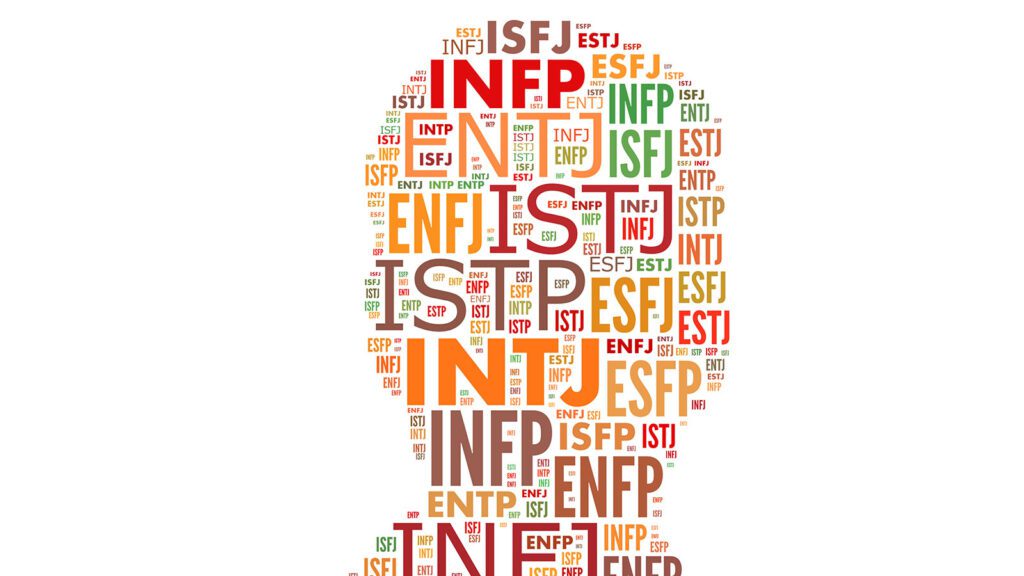The XNXP Personality Test provides comprehensive insights into your unique traits based on the widely-used Myers-Briggs framework. By exploring preferences across 4 key dimensions – extraversion vs introversion, intuition vs sensing, thinking vs feeling, and judging vs perceiving – this test helps you understand your natural inclinations.
Knowing your personality type has many benefits. It enables more explicit self-awareness, improves relationships and communication, and helps you make informed career choices aligned with your strengths.
This user-friendly test is suitable for all individuals interested in self-discovery – students, professionals, or anyone seeking a deeper understanding of themselves.
Take the test now to gain valuable insights into your core personality. Understand how your preferences shape your characteristics. Unlock your potential through the knowledge of your unique personality type.
What are the XNXP Personality Traits?
The term XNXP represents a concise way to refer to four fundamental personality traits: Extroversion (X), Intuition (N), Thinking (T), and Perceiving (P). Rooted in the Myers-Briggs Type Indicator (MBTI), a well-known tool for evaluating personality, these traits contribute to forming distinct personality profiles among individuals, resulting in 16 possible personality types. The XNXP personality traits represent a unique blend of four key trait dimensions based on the Myers-Briggs framework. Let’s break down what each letter signifies:
Extroversion (X):
Extroverts draw energy from social interactions and thrive in stimulating external environments. They tend to be outgoing, expressive, enthusiastic, and enjoy working collaboratively. Extroverts are comfortable taking initiative and can sometimes be impulsive.
Intuition (N):
Those with an Intuition preference rely on big-picture thinking, patterns, and possibilities. They focus on the future and abstract concepts rather than concrete details. Intuitive display creativity, imagination, and aptitude for innovation. They follow their inspirations and tend to think divergently.
Thinking (T):
Thinkers approach decisions through logic, objective analysis, and reason. They value rationality and tend to be skeptical. Thinkers strive to make impartial judgments based on principles rather than emotions. They excel at critiquing ideas and solving complex problems.
Perceiving (P):
With a perceiving preference, individuals stay curious, adaptable, and open-minded. They are tolerant of ambiguity and uncertainty. Perceivers enjoy exploring options and resisting structure. They adapt well to change, postpone decisions, and take a spontaneous approach.
Together these traits shape the XNXP type who displays high intellectual capacity, entrepreneurial ingenuity, individualism, and a visionary mindset. They come across as unconventional, energetic, and strategic thinkers.
The Four XNXP Personality Types
The XNXP personality umbrella encompasses four specific MBTI types that share the core traits of Intuition, introversion/Extroversion, and Perceiving. These include:
ENFP (Extrovert, Intuitive, Feeling, Perceiving)
- Expressive, enthusiastic, imaginative, exploratory, adaptable, empathetic
- Excellent communicators, creative thinkers, energetic collaborators
- May struggle with focus and organization
ENTP (Extrovert, Intuitive, Thinking, Perceiving)
- Analytical, logical, debating skills, problem-solving ability, innovative
- Confident, assertive, quick-witted, original thinking, independent
- Can be insensitive at times, distrustful of tradition
INFP (Introverted, Intuitive, Feeling, Perceiving)
- Idealistic, passionate, imaginative, insightful, caring, creative
- Strong personal values, sensitive, empathetic, introspective
- May have difficulty in decision-making and taking action
INTP (Introverted, Intuitive, Thinking, Perceiving)
- Analytical, logical, independent, curious, open-minded
- Excellent critical thinking and pattern recognition
- Self-motivated problem solvers, interested in the sciences
- May struggle to articulate emotions and connect socially
While sharing core XNXP traits, each type has unique strengths, weaknesses, and interests arising from the combinations of preferences. Upbringing, life experiences, and other factors also shape personality.
Examining the Myers-Briggs Type Indicator (MBTI) and Personality Models

The Myers-Briggs Type Indicator (MBTI) is one of the most widely used personality assessments, categorizing individuals into 16 types based on preferences across 4 dichotomies:
- Extraversion vs Introversion
- Sensing vs Intuition
- Thinking vs Feeling
- Judging vs Perceiving
Though popular, the MBTI has faced criticism regarding its psychometric validity and reliance on binary choices. Some argue it lacks nuance in describing personality.
The Five-Factor Model (FFM) or Big Five offers an alternate framework for understanding personality based on five key dimensions:
- Extraversion
- Agreeability
- Conscientiousness
- Neuroticism
- Openness to Experience
Research shows the FFM to be more psychologically robust and predictive of behaviors. Tools like the NEO-PI-R inventory measure the five factors as continuous spectrums rather than binary categories.
Other models include Eysenck’s three dimensions of Extraversion, Neuroticism, and Psychoticism. Contemporary personality research favors dimensional models over type categorization.
While traits are relatively stable in adulthood, major life events and transitions can shift them over time. Therapy and interventions may also modify traits. Personality assessment remains an active field, with new models emerging to further nuance our understanding of the self. The MBTI retains popularity in business contexts despite academic debates regarding its validity.
How to Maximize the compatibility of XNXP traits in Relationships?
The expressive creativity and unconventionality of XNXP types can profoundly shape their romantic partnerships and friendships. Here’s how key traits may affect connections:
- Extroversion
Their outgoing nature means XNXPs thrive on social stimulation. This can overwhelm introverted partners who need alone time to recharge. Finding the right balance is key.
- Intuition
Their abstract thinking can mystify practical sensing types. But fellow intuitives will click with their theoretical interests and future visions.
- Thinking vs Feeling
Thinkers’ objectivity may seem cold to feelers who value compassion. Yet too much emotion can frustrate thinkers. Communication of needs is essential.
- Perceiving
Their spontaneity excites judging partners craving more adventure. But judges may try to over-structure the peripatetic perceiver.
In relationships, XNXPs should leverage their strengths of creativity, curiosity, and vision while being mindful of their partners’ preferences. Their ideal match balances a shared intuitive spirit with qualities that complement the XNXP approach to life.
Read More:
The 20 Powerful Ways to Raise Your Vibrational Frequency
The Unique Traits of XNXP Personalities: 7 Key Characteristics”
- Embracing the Bigger Picture
XNXP personalities share an inherent intuitive quality. This inclination propels them to engage with the bigger picture and future possibilities. While this perspective fuels their creativity and imaginative prowess, it also demands a balance with the present moment—a challenge for those who might become too absorbed in tomorrow’s potential.
- Unquenchable curiosity
A hallmark of XNXP personality types lies in their insatiable curiosity. Directed toward their passions and interests, this curiosity fuels a knack for in-depth research and exploration. While this trait often enriches their knowledge, it’s not without its risks, as curiosity might lead them into uncharted territories.
- Spontaneity as a Way of Life
Perceiving functions define all XNXP types, and spontaneity is a natural offshoot. Quick decisions are their forte, sometimes at the expense of thorough consideration. The aversion to rigid structures aligns with their desire to navigate various avenues, a trait they value deeply.
- Crafting Careers with Passion
The professional aspirations of XNXP individuals are marked by a pursuit of creative expression. Their career paths often meander through different industries, driven by a desire to merge passion with profession. Flexibility in work schedules and an openness to remote work stem from their intuitive, modern mindset.
- Enneagram Echoes
XNXP personalities frequently find resonance with certain enneagram types, predominantly 5, 7, and 9. While this pattern generally holds true, it’s essential to remember that individuals are nuanced and can embody other enneagram types as well.
- Introverted Energizers
Within the spectrum of XNXP types, one finds a blend of introverts and introverted extroverts. All these personalities share a common need for solitude to recharge. Curiously, even seemingly extroverted types like ENFP and ENTP can exhibit introverted tendencies due to their occasional withdrawal.
- Champions of Unconventionality
An undeniable facet of XNXP traits is their affinity for the unconventional. This emanates from their intuitive core. Embracing innovation over tradition, these personalities are more inclined to question established norms. They are perennial seekers of novel methodologies and approaches, a quality that sparks creativity but might also lead to clashes with more conventional counterparts.
Pinpoint Your Type Through Self-Reflection
- Analyze your cognitive functions – how do you process information and make decisions? What energizes you? This can reveal your preferences.
- Observe your typical behaviors and motivations. What activities excite you? What drains you? Align patterns with XNXP trait descriptions.
- Reflect on your natural inclinations since childhood. Look for consistent personality themes throughout your lifetime.
- Examine your strengths and weaknesses. What comes easily to you? What requires more effort? Consider connections to XNXP qualities.
- Don’t try to project an idealized self. Be honest about who you are, not who you want to be. Authentic self-awareness is the key.
Take a Reputable MBTI-based Assessment
- The MBTI questionnaire can provide clarity into your likely personality type. But choose a validated test and answer honestly.
- Look for tests with robust psychometric properties. Avoid online quizzes of questionable quality and accuracy.
- Supplement test results with self-reflection. No single assessment captures every nuance of personality.
- Consider discussing your results with a qualified MBTI practitioner who can interpret them appropriately.
- View any personality test as a starting point for greater self-understanding, not an absolute final verdict.
Getting to know your XNXP type takes self-observation, research, and often professional guidance. Combining objective tests with subjective insights yields the clearest picture of your disposition and inclinations. The journey of self-discovery is an ongoing process.
Wrapping Up
The XNXP family of personality types offers a fascinating lens for self-understanding. Comprised of ENFP, ENTP, INFP, and INTP types, XNXPs share the core qualities of intuition, creativity, and an independent spirit.
Determining your specific XNXP variant involves looking inward at your cognitive functions, motivations, and behaviors. Comparing your natural inclinations to type descriptions can provide clarity. Objective MBTI assessments also have value in suggesting likely categorizations.
Keep in mind that no inventory perfectly captures the complexity of personality. View test results as a starting point for deeper exploration through self-reflection. Focus on authentic self-knowledge rather than projecting an idealized identity.
Knowing your personality type equips you to nurture your strengths while developing lesser aspects. Leading with self-awareness, you can craft a life that resonates with your disposition – from careers to relationships. Appreciate that your type is neither better nor worse than others.










